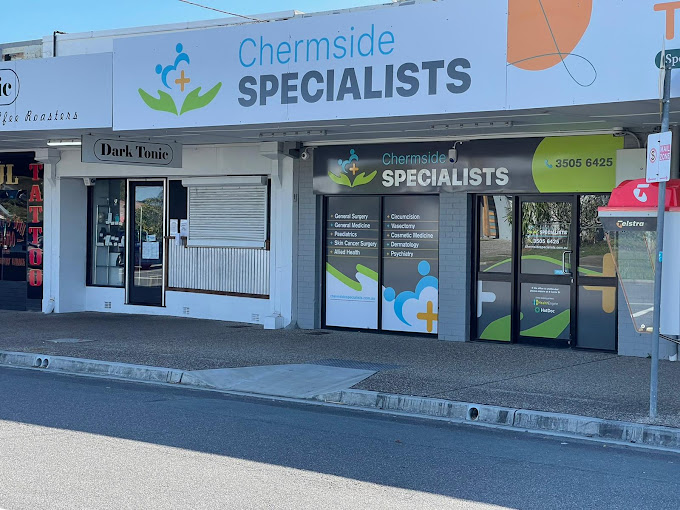A regular doctor prescribes meeting a general surgeon when your health condition needs surgery or medication related to surgery.
A general surgeon has knowledge and experience in various types of surgeries. They have a complete understanding of human anatomy and are skilled in performing surgical procedures. General surgeons can do different kinds of surgeries on soft tissues, like removing skin growths and cysts, removing the gallbladder, and fixing complex hernias. They can also do surgeries on the bowel and liver, including taking out part or all of the colon.
When meeting with a general surgeon, you can expect their assessment of your condition to determine if surgery is the appropriate course of action. The general surgery team will walk you through the upcoming procedure and address any concerns you may have. The surgeon will also provide instructions on how to prepare for the surgery, which may involve recommending specific tests that need to be done.
In North Brisbane, general surgeons provide a variety of services, including—but not limited to—hernia repair, gallbladder removal, appendectomies, breast surgery, and the treatment of skin lesions. Patients can expect to receive a thorough assessment of their condition, a detailed explanation of the recommended treatment options, and personalized care that meets their specific needs when consulting with a general surgeon.
When you have your first meeting with a general surgeon, you’ll talk about your medical history, current symptoms, and any past treatments or surgeries. The surgeon will also do a physical exam and may order more tests like blood work or imaging scans to figure out the best treatment plan. Your surgeon will be open and honest with you about the risks, benefits, and what results to expect from the treatment.
What are the responsibilities of a General Surgeon?
While certain surgeries require specialists like cardiac (heart) surgeons or neurosurgeons (brain surgeons), there are also general surgeons who can perform a wide range of procedures. A general surgeon is well-versed in all aspects of the surgical process, including the initial assessment, preparation, surgery itself, and post-operative care.
Education & Training Of A General Surgeon
General surgeons are doctors who train specifically in the surgical treatment of illness and injury. Just like all physicians, they start by attending medical school, graduating with their MD degrees, and going on to complete surgical residencies before applying for board certification. Then they undergo five years of surgical residency training in an accredited program. After completing their residency, they can apply for board certification by passing the General Surgery Qualifying Examination and the General Surgery Certifying Examination.
Reason To See A General Surgeon
- Your Physician Suggests Surgery
If your physician determines that non-surgical treatments are inadequate, you may be referred to a general surgeon. A visit to a surgeon may be necessary if other treatments have been unsuccessful.
- You Have a Medical Emergency
Due to their extensive knowledge, general surgeons perform a range of emergency procedures. If you have appendicitis, a hernia, gallstones, or even a gunshot wound, you may be seen by a general surgeon.
- Elective Procedures
When you opt for an elective procedure, you are scheduling a planned surgery with your doctor. This may include surgeries such as hernia repairs and hemorrhoidectomies, which involve the removal of swollen veins in the rectum or anus.
- To Discuss Pre and Post-Surgical Care
A general surgeon will help you prepare for surgery, which may involve making adjustments to medication, scheduling tests and exams, and physical and psychological preparation. Post-operative care refers to the care you will receive after the surgical procedure.
What To Expect From a General Surgeon
A general surgeon’s main job is to perform surgeries after understanding the problem. After a proper diagnosis, surgeries can be done on any part of the body. This field of surgery includes trauma and burns, surgeries for children, cancer surgeries, critical care surgeries, head and neck surgeries, organ transplants, vascular surgeries, appendix or gallbladder removals, colonoscopies, thyroid surgeries, keyhole surgeries, and weight loss surgeries.
When individuals experience injuries or serious illnesses requiring surgery, a general surgeon’s initial step is to provide counseling and motivate them to recover swiftly. This psychological support plays a crucial role in boosting patients’ confidence and helping them through the anxiety associated with surgery.
It’s important for the general surgeon to know how long a patient stays at the nursing home after surgery. To understand the overall recovery process and plan post-operative care effectively a general surgeon has to keep the records of the patients.
Lastly, general surgeons fulfill their duties by providing individualized care and assistance, maintaining open communication and cooperation with the patient and their family, and monitoring the progress of the patient’s health.
The Bottom Line
In conclusion, consulting with a General Surgeon North Brisbane can provide patients with a thorough assessment of their condition, personalized treatment options, and comprehensive pre- and post-operative care. General Surgeons in North Brisbane are equipped to handle a wide range of surgical procedures and provide individualized care, maintaining open communication and cooperation with their patients. Whether it’s for a scheduled surgery or a medical emergency, the expertise and support provided by General Surgeons are crucial in ensuring the well-being and recovery of their patients.











